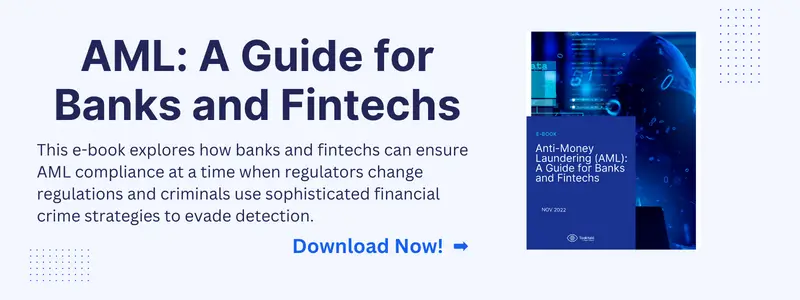Anti Money Laundering Act and Anti Terrorism Financing in Malaysia
Contents
- What is AMLA Malaysia
- AMLA in 2001
- AMLA in 2012
- Components of AMLA Malaysia
- Anti Terror Financing
- Regulatory Bodies governing AML in Malaysia
- How to Comply With AMLA Malaysia?
- Challenges of AMLA Compliance
- Penalties of Non-compliance
- The Impact of Technology on Anti Money Laundering Efforts
- How can Tookitaki help with AML Compliance?
In recent years, countries around the world have faced an increasing challenge in combating money laundering activities and the financing of terrorism. Malaysia is no exception, with the government implementing the Anti Money Laundering Act (AMLA) to address these issues. In this article, we will delve into the key aspects of AMLA and its significance in the Malaysian context.
What is AMLA Malaysia
The Anti Money Laundering Act (AMLA) Malaysia is a crucial piece of legislation that plays a vital role in safeguarding the financial system of the country. Enacted in 2001, AMLA Malaysia has been continuously evolving to keep pace with the changing landscape of financial crimes and illicit activities. The Act serves as a robust shield against money laundering and terrorism financing, aiming to maintain the integrity and stability of Malaysia's financial sector.
One of the key features of AMLA Malaysia is its emphasis on the implementation of stringent compliance measures by financial institutions. These measures include customer due diligence, record-keeping requirements, and reporting of suspicious transactions. By imposing these obligations, AMLA Malaysia ensures that financial entities are equipped to identify and deter illicit financial activities effectively.
AMLA in 2001
When AMLA was initially established in 2001, it marked a crucial step towards safeguarding Malaysia's financial system from illicit activities. The Act laid the foundation for regulatory authorities to monitor and combat money laundering and terrorism financing effectively. It introduced stringent measures to identify suspicious transactions, conduct due diligence on customers, and establish comprehensive reporting mechanisms.
Furthermore, the implementation of the Anti-Money Laundering Act (AMLA) in 2001 was a response to the increasing global concern over the proliferation of financial crimes. Malaysia, as a member of the Financial Action Task Force (FATF), recognized the importance of aligning its regulatory framework with international standards to enhance transparency and integrity in the financial sector. The Act not only aimed to protect the country's financial system but also to strengthen its reputation as a responsible and compliant jurisdiction in the global fight against money laundering and terrorism financing.
With the enactment of AMLA in 2001, Malaysia demonstrated its commitment to upholding the rule of law and promoting financial stability. The Act empowered regulatory bodies to collaborate with law enforcement agencies, financial institutions, and other stakeholders to effectively detect and deter illicit financial activities. By establishing a robust legal framework and enforcement mechanisms, Malaysia set a precedent for proactive measures against money laundering and terrorism financing, contributing to a safer and more secure financial environment for its citizens and investors alike.
AMLA in 2012
In 2012, the Malaysian government recognized the need to update the Anti-Money Laundering Act (AMLA) to align with international standards and practices. The revision aimed to strengthen the country's anti-money laundering efforts by introducing new provisions and enhancing existing ones. These changes included expanding the scope of regulated entities, introducing more robust customer due diligence processes, and establishing enhanced reporting obligations.
One of the key updates to AMLA in 2012 was the inclusion of a risk-based approach to anti-money laundering efforts. This approach required regulated entities to assess the risks of money laundering and terrorist financing they faced and implement measures to mitigate these risks effectively. By adopting a risk-based approach, Malaysia aimed to enhance the effectiveness of its anti-money laundering framework and better target resources towards high-risk areas.
Additionally, the revised AMLA in 2012 also emphasized the importance of international cooperation in combating money laundering and terrorist financing. The Malaysian government actively engaged with foreign counterparts and international organizations to exchange information, coordinate investigations, and strengthen cross-border enforcement efforts. This collaboration was crucial in addressing the global nature of financial crimes and ensuring that Malaysia remained a proactive player in the international fight against money laundering.
Components of AMLA Malaysia
AMLA Malaysia consists of several key components that work in tandem to combat money laundering and terrorism financing. These components include reporting obligations, customer due diligence, record-keeping requirements, internal controls, and training programs. Financial institutions are required to establish and maintain stringent procedures and policies, ensuring compliance with these components and thus reducing the risk of illicit activities.
Reporting obligations under AMLA Malaysia mandate that financial institutions report any suspicious transactions to the relevant authorities promptly. This ensures that potentially illicit activities are flagged and investigated in a timely manner, preventing money laundering and terrorism financing from occurring unchecked. Customer due diligence is another crucial component, requiring financial institutions to verify the identities of their clients and assess the risks associated with their transactions. By conducting thorough due diligence, institutions can mitigate the chances of unwittingly facilitating illegal financial activities.
Record-keeping requirements play a vital role in the effectiveness of AMLA Malaysia. Financial institutions are mandated to maintain detailed records of transactions and customer interactions, allowing for traceability and auditability. These records serve as a crucial tool in investigations and prosecutions related to money laundering and terrorism financing. Internal controls within financial institutions are designed to monitor and enforce compliance with AMLA Malaysia's regulations.
By implementing robust internal controls, institutions can detect and prevent potential violations, safeguarding the integrity of the financial system. Training programs are also essential components, ensuring that staff members are equipped with the knowledge and skills necessary to identify and report suspicious activities effectively.
Anti Terror Financing
In addition to combating money laundering, AMLA also tackles the financing of terrorism. Malaysia recognizes the importance of disrupting the financial networks that support terrorist activities, and AMLA serves as a vital tool in this regard. By monitoring financial transactions, assessing potential risks, and enhancing cooperation between relevant authorities, AMLA contributes significantly to Malaysia's overall counter-terrorism efforts.
One of the key aspects of AMLA's approach to combating terror financing is the emphasis on international cooperation. Malaysia actively engages with other countries and international organizations to share information, intelligence, and best practices in the fight against terrorism. This collaborative approach not only strengthens Malaysia's own efforts but also contributes to global security by disrupting transnational terrorist financing networks.
Furthermore, AMLA's role in preventing terror financing goes beyond just monitoring financial transactions. The agency also conducts thorough investigations, utilizes advanced data analytics tools, and works closely with law enforcement agencies to identify and disrupt any suspicious financial activities that may be linked to terrorist organizations. This proactive approach is crucial in staying ahead of evolving threats and ensuring that Malaysia remains a hostile environment for terrorist financing.
Regulatory Bodies governing AML in Malaysia
The effective implementation of the Anti-Money Laundering Act (AMLA) in Malaysia requires a multi-faceted approach involving collaborative efforts from various regulatory bodies. At the forefront of these efforts is the Central Bank of Malaysia, commonly known as Bank Negara Malaysia (BNM). Established in 1959, BNM serves as the country's central bank and plays a pivotal role in overseeing AML initiatives. In addition to its core functions of monetary stability and financial supervision, BNM is also empowered to issue comprehensive guidelines and regulations pertaining to AML practices. These guidelines serve as a roadmap for financial institutions to enhance their AML frameworks and ensure compliance with regulatory standards.
Furthermore, alongside BNM, other regulatory bodies contribute significantly to the AML landscape in Malaysia. The Securities Commission Malaysia (SC) stands out as a key player in regulating the capital market and ensuring the integrity of Malaysia's financial system. With a focus on investor protection and market transparency, the SC collaborates closely with BNM to combat money laundering activities within the securities industry.
Additionally, the Malaysian Anti-Corruption Commission (MACC) plays a vital role in preventing and investigating corruption-related offenses that may be linked to money laundering activities. By fostering inter-agency cooperation and sharing intelligence, these regulatory bodies collectively strengthen the country's AML framework and safeguard its financial integrity.
In addition to the aforementioned measures, it is crucial for financial institutions to establish a designated compliance officer or team responsible for overseeing AMLA Malaysia compliance efforts. This individual or team should possess a deep understanding of the regulatory requirements and be equipped to promptly address any potential issues or gaps in the institution's AMLA compliance framework. Regular communication and collaboration with regulatory authorities and industry peers can also provide valuable insights and best practices to enhance compliance measures further.
Furthermore, staying abreast of updates and amendments to AMLA Malaysia regulations is paramount for financial institutions. This requires a commitment to ongoing education and professional development within the organization to ensure that compliance practices remain current and effective. Engaging in regular risk assessments and audits can help identify areas for improvement and strengthen the institution's overall AMLA compliance posture. By continuously evaluating and enhancing their compliance strategies, financial institutions can mitigate the risks of money laundering and terrorist financing activities, safeguarding both their reputation and the integrity of the financial system.
Challenges of AMLA Compliance
While AMLA serves as a robust framework, it is not without its challenges. Compliance can be complex and resource-intensive, particularly for smaller institutions with limited budgets. Keeping pace with evolving money laundering techniques and staying ahead of technologically advanced criminals poses an ongoing challenge. Additionally, managing reputational risks, ensuring cross-border collaboration, and balancing customer experience with compliance requirements are also areas that financial institutions need to address.
One of the key challenges in AMLA compliance is the need for continuous monitoring and updating of internal systems and processes to detect and prevent money laundering activities effectively. This requires significant investment in technology and skilled personnel to analyze vast amounts of data in real-time. Moreover, the regulatory landscape is constantly changing, with new guidelines and requirements being introduced regularly, making it essential for institutions to adapt quickly to remain compliant.
Another significant challenge is the increasing sophistication of financial crimes, such as the use of cryptocurrencies and online platforms for illicit transactions. This dynamic environment requires financial institutions to invest in cutting-edge technologies like artificial intelligence and machine learning to enhance their detection capabilities. Furthermore, the global nature of money laundering activities necessitates strong international cooperation and information sharing among regulatory bodies and financial institutions to combat this pervasive threat effectively.
Penalties of Non-compliance
Non-compliance with AMLA Malaysia can lead to severe penalties, which include fines, imprisonment, and revocation of licenses. Regulatory authorities have the power to investigate suspected violations and take necessary enforcement actions. The potential damage to a financial institution's reputation resulting from non-compliance should also not be underestimated, impacting both customer trust and investor confidence.
Furthermore, in addition to the legal consequences, non-compliance with AMLA Malaysia can also result in significant financial losses for a financial institution. This can occur through hefty fines imposed by regulatory bodies, the costs associated with remediation efforts to rectify compliance issues, and the loss of business opportunities due to reputational damage. It is crucial for financial institutions to allocate sufficient resources to ensure compliance with AMLA Malaysia to avoid these detrimental financial implications.
Moreover, non-compliance with AMLA Malaysia can have far-reaching implications beyond just the financial sector. It can also impact the overall economy of Malaysia by undermining the integrity of the financial system, increasing the risk of money laundering and terrorist financing activities. This can lead to a loss of confidence in the country's financial institutions both domestically and internationally, potentially affecting foreign investments and economic growth. Therefore, adherence to AMLA Malaysia is not only essential for individual financial institutions but also for the stability and reputation of the Malaysian economy as a whole.
The Impact of Technology on Anti Money Laundering Efforts
Technology has revolutionized the way financial institutions combat money laundering and terrorism financing. Sophisticated tools powered by artificial intelligence and machine learning algorithms enable the detection of unusual patterns, identify high-risk individuals, and perform real-time monitoring of transactions. By leveraging technology, financial institutions can streamline compliance processes, minimize false positives, and enhance their overall effectiveness in combating financial crimes.
How can Tookitaki help with AML Compliance?
As Malaysia continues to fortify its defences against money laundering and terrorism financing, the need for cutting-edge solutions like Tookitaki's FinCense becomes increasingly vital. FinCense, an end-to-end operating system of anti-money laundering and fraud prevention tools, is designed to seamlessly integrate with the AFC Ecosystem, providing fintechs and traditional banks with the advanced capabilities they need to stay ahead of financial criminals.
With its innovative federated learning model, FinCense is adept at identifying unique financial crime attacks, offering comprehensive risk coverage through its bundled suite of financial crime tools. From accelerating customer onboarding with compliance assurance to enhancing collaboration across investigation teams, Tookitaki's FinCense equips institutions with fewer, higher-quality fraud alerts and a 360-degree customer risk profile.
If you're looking to elevate your institution's compliance program and effectively manage financial crime risks, talk to our experts at Tookitaki and discover how our solutions can transform your AML and fraud prevention strategies.
Anti-Financial Crime Compliance with Tookitaki?
.png?width=250&height=104&name=PNG%20-%20Montserrat%20LOGO%20-%20a%20Thunes%20company%20(White).png)
-1.png?width=200&height=83&name=PNG%20-%20Montserrat%20LOGO%20-%20a%20Thunes%20company%20(White)-1.png)




